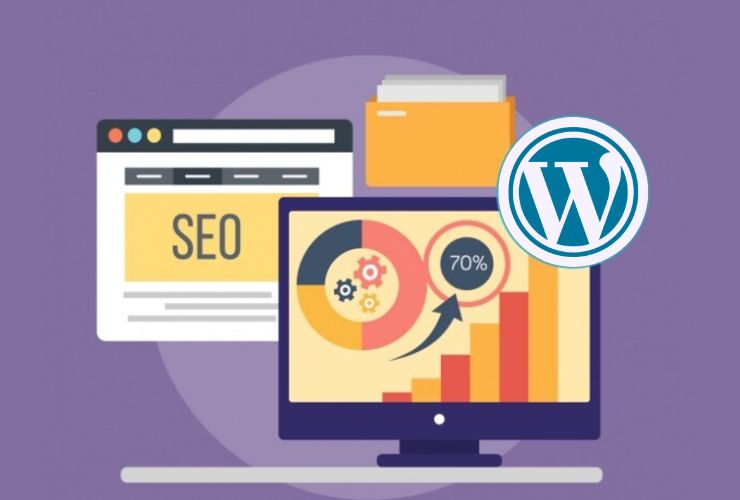SEO is important because it enables the traffic for your WordPress site. Lack of proper SEO can also lead your website to become low-ranking, which, in turn, means more missed traffic opportunities. Follow these easy steps to enhance the performance of your WordPress website.
1. Use an SEO-friendly theme
Your theme is a crucial factor in SEO. Use a light-weight, SEO-friendly theme for speed, mobile-friendliness, and clean code, which will likely help your search rankings.
2. Install an SEO Plugin
SEO plugins such as Yoast SEO or Rank Math make optimization tasks so easy. These plugins let you handle meta titles, descriptions, sitemaps, and other essential SEO factors right from your WordPress dashboard.
3. Optimize Permalinks
By default, WordPress generates complex URLs. To make them SEO-friendly, go to Settings > Permalinks and choose the “Post name” option. This ensures clean, readable URLs that are better for SEO.
4. Focus on High-Quality Content
Content remains the cornerstone of SEO. Regularly publish valuable, keyword-rich content to keep your site active and engaging. Long-tail keywords can help increase visibility in search engine results.
5. Use SEO-Friendly Headers
Proper header tags (H1, H2, H3, etc.) outline your content and make sense to search engines. Insert your target keyword in H1, and scatter some related keywords across H2s and H3s.
6. Optimize Images
Images slow up your site, which reduces your SEO. Compress images for faster loading time and include descriptive alt text with relevant keywords. Do consider lazy loading where the images load as the scroll goes down.
7. Speed up Your Website
Website speed is essential for both SEO and user experience. Use the caching plugins WP Rocket or W3 Total Cache and consider using a Content Delivery Network (CDN) to speed up content delivery.
8. Mobile Optimization
With mobile-first indexing being a ranking factor, your WordPress site should be mobile-responsive. Test your site on various devices to make sure it works well and provides a good user experience.
9. Internal and External Linking
Linking to relevant internal pages and authoritative external websites improves SEO by helping search engines understand your content and boosting your site’s authority.
10. XML Sitemap
An XML sitemap helps search engines index your content efficiently. SEO plugins like Yoast SEO automatically create one for you. Submit this sitemap to Google Search Console for better indexing.
11. Local SEO Optimization (if applicable)
Local business optimization is critical for businesses. Include your business on Google My Business, put a Google map on the site, and include keywords such as city or neighborhood names in the content.
12. SEO Performance Monitoring
Monitor the performance of your website using Google Analytics and Google Search Console. They provide information about your website’s traffic, keyword performance, and improvement areas.
By following these steps, you can dramatically improve the SEO of your WordPress website and increase its visibility, bringing it more organic traffic.













 Database Development
Database Development












































